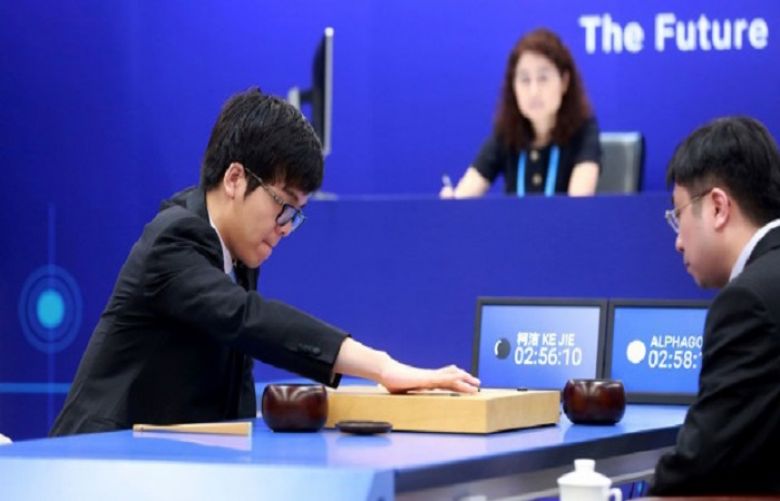On Tuesday, Chinese Go champion Ke Jie faced off for the first time against AlphaGo, an artificial intelligence program developed by DeepMind, in China's oldest game of strategy and surprise. Despite the high stakes for humanity, Chinese netizens were unable to watch the event live.
AlphaGo is a shining example of the future of AI technology with an incredible ability to come up with creative, strategic moves faster than any human. Go, or weiqi (围棋) in China, is a game of enormous possibility, with roughly 200 potential moves per turn available to the player, making it the perfect battleground to test advanced artificial intelligence like AlphaGo.
The program has proven to be a more than formidable opponent. In 2015, European Go champion Fan Hui lost 5-0 to an earlier version of AlphaGo, and last year, the program bested Korean Go master Lee Sedol in a series of high-profile matches. In both Europe and Korea, millions of viewers streamed the games while news outlets rushed to report on the outcomes.
Until Tuesday, the machine had yet to face a Chinese competitor. According to the South China Morning Post, child prodigy Ke Jie began playing Go professionally at just 11 years old. Now 19, he represents China and its long history with the game against the rise of the machines.
But what looked like an opportunity for the press to cover a historic event in human history has instead been met with extensive censorship from the Chinese government. Google owns DeepMind, which means that any reports of AlphaGo's success or failure link back to the Western technology giant with a complicated history of doing business in China.
In the early 2000s, Google complied with some Chinese censorship laws and offered limited services until 2010, when Chinese hackers infiltrated Gmail, causing Google to back out of the country entirely. Despite rumors, it has yet to return.
According to Wired, Google helped set up this week's competition, which takes place in the showpiece watertown of Wuzhen. In doing so, the company worked closely with Chinese authorities, as well as the game's sponsor, the Chinese Go Association. Wired quotes Google chairman Eric Schmidt who spoke before the event: “Thanks so very much for having us, for letting us come."
But just as local press outlets prepared to cover the event, the Chinese government issued a series of instructions ordering its censorship.
China Digital Times shared some of these leaked government directives, although the source remains anonymous.
"This match may not be broadcast live in any form and without exception, including text commentary, photography, video streams, self-media accounts and so on," the order said.
Google has yet to comment on the coverage ban, according to CNBC. The company holds a few offices in Beijing and Shanghai, where they continue to expand their influence by working with international companies based in China.
Ke has now faced and been bested by AlphaGo twice in a three-match series. Coverage of the matches has been muted on Chinese media outlets, particularly regarding Google's role in the sophisticated AI. Even if Ke does manage to win one for humanity in his last match with AlphaGo on Saturday, his country will not be watching.







